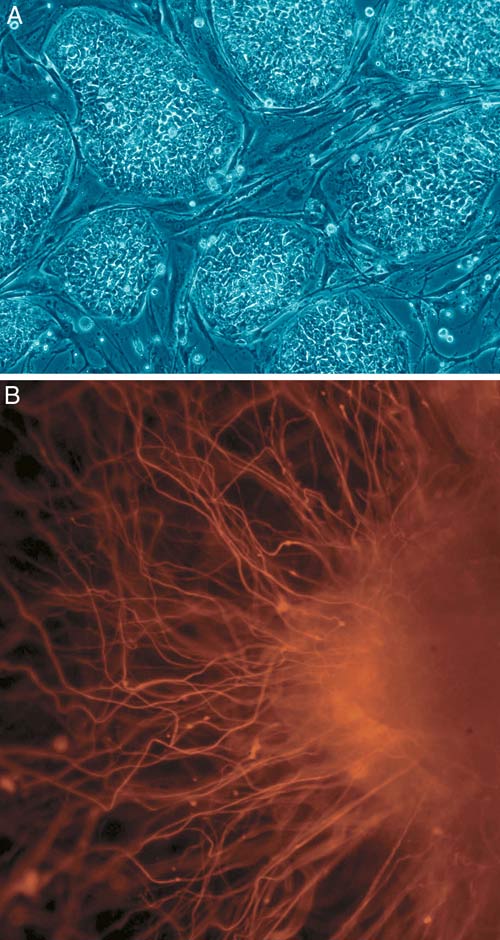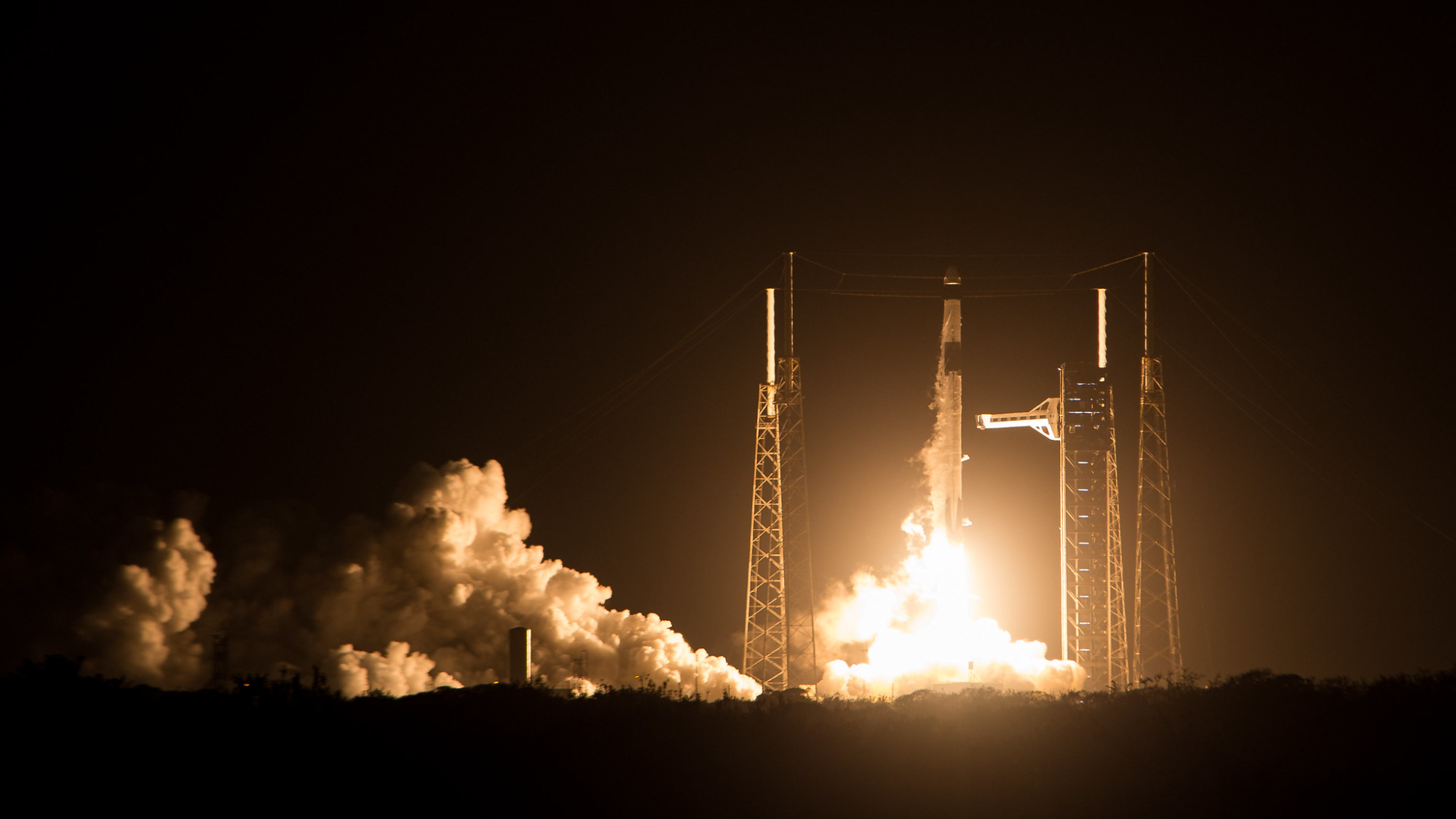Embryonic Idea: Human Procreation in Space Would Be Perilous

Breaking space news, the latest updates on rocket launches, skywatching events and more!
You are now subscribed
Your newsletter sign-up was successful
Want to add more newsletters?

Delivered daily
Daily Newsletter
Breaking space news, the latest updates on rocket launches, skywatching events and more!

Once a month
Watch This Space
Sign up to our monthly entertainment newsletter to keep up with all our coverage of the latest sci-fi and space movies, tv shows, games and books.

Once a week
Night Sky This Week
Discover this week's must-see night sky events, moon phases, and stunning astrophotos. Sign up for our skywatching newsletter and explore the universe with us!

Twice a month
Strange New Words
Space.com's Sci-Fi Reader's Club. Read a sci-fi short story every month and join a virtual community of fellow science fiction fans!
Embryonicstem cells behave very differently outside the pull ofEarth's gravity, researchers suggest.
Thesefindings warn that procreationin space may be fraught with peril. However, further researchcould helpunlock ways to combat the negative effects that weightlessness has onpeople ofall ages.
Themicrogravity that astronauts experience orbiting Earth on thespace shuttle or International Space Station can ravagetheir bodies on lengthy missions, atrophying muscles,weakening bones andcausing irregular heartbeats. To advance longer and farther into space,researchers want to curtail these risks.
Byanalyzing the effects of weightlessness on the cellular level,scientists in Australia now believe they have pinpointed the roots ofitsharmful consequences. Microgravity apparently tampers with stem cells,whichall other cells originate from. Stem cells normally act as a repairsystem forthe body by replenishing its tissues.
Byuncovering the origins of these problems, the investigators nowhope to design remedies that can truly help fix them.
"Ourresearch is headed toward creating countermeasures thatcan be utilized by biomedicalintervention for astronauts," said researcher Helder Marcal,a tissueengineer at the University of New South Wales in Australia.
Intheir experiments, researchers employed human embryonic stemcells, which possess the extraordinary ability to become any othercell. Tosimulate microgravity on Earth, the scientists used a NASA-designedmachinewhich kept the cells nourished with oxygen and nutrients whileconstantlyspinning to keep the cells in a state of freefall for 28 days.
Breaking space news, the latest updates on rocket launches, skywatching events and more!
Afterthis experiment, the cells showed vast differences on themolecular level, with 64 percent of their proteins differing from thosegrownunder normal gravity. Specifically, these microgravity-exposed cellsgeneratedmore proteins that degrade bone and fewer proteins with antioxidanteffects.Antioxidants protect against reactive oxidants that can damage DNA.
Microgravityalso influenced levels of a broad range of otherproteins. These include those involved in cell division, the immunesystem, themuscle and skeletal systems, calcium levels within cells, and cellmotility.
Thesefindings in embryonic stem cells may not bode well for attempts at procreationin microgravity.
"Thesimulated microgravity experiments we are investigating don?t seem tosuggest avery positive outcome," Marcal said.
Someof the detrimental risks that microgravity may have on an embryoincludeinhibited bone maturation, heart and blood vessel alterations, delayedneuralgrowth, and altered muscle tissue maturation, Marcal speculated.
"Theeffect that microgravity may have on a growing embryo or fetus would besimilarto an adult body ? however, much more detrimental," Marcal said. "Theadult body can adapt to some microgravity space environments ? however,whatremains totally unknown is if an embryo can adapt to such anenvironmenttoo."
Theresearchers now aim to decipher why exactly microgravity is havingthesemolecular effects. "Whatwe are almost certain of is that the human body dependsand relies on gravity for some mechanical or circulatoryfeedback,"Marcal said.
Mechanicalfeedback is needed by bone, while circulatory feedbackis needed by blood vessels. "Vessel walls become weak and ourcirculationand immune system becomes compromised," Marcal explained.
Theresearchers are now testing other cell types to analyze theeffects of simulated microgravity on those. In addition, they areworking ontissues grown from cells that actually flew on one of the recent spaceshuttlemissions.
"Thuswe are hoping to combine and complement ourground-based experiments with those in real space conditions," saidresearcher Brendan Burns, a biologist at the University of New SouthWales.
"Humanprocreation in space is inevitable, I believe,"Marcal said.
Whenit comes to whether or not medical interventions might protect embryosandfetuses from the hazards of microgravity, "therapeutic andpharmaceuticalintervention may not be the optimum outcome," Marcal said. "Humansmay have to consider that in the not so distant future, geneticengineering ourbodies may the way forward if we are to explore planets in our solarsystem.However, this raises other ethical and moral issues."
Thescientists detailed their findings at the Astrobiology ScienceConference 2010 in Texas in April.
- Video:The Zero-G Coffee Cup, OrbitalAcrobatics
- Shadesof Gravity
- Tripto Mars Would Turn Astronauts Into Weaklings

Charles Q. Choi is a contributing writer for Space.com and Live Science. He covers all things human origins and astronomy as well as physics, animals and general science topics. Charles has a Master of Arts degree from the University of Missouri-Columbia, School of Journalism and a Bachelor of Arts degree from the University of South Florida. Charles has visited every continent on Earth, drinking rancid yak butter tea in Lhasa, snorkeling with sea lions in the Galapagos and even climbing an iceberg in Antarctica. Visit him at http://www.sciwriter.us
